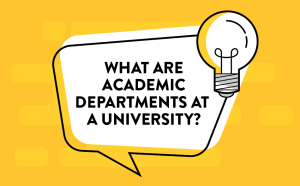Written with Mary Hanneman
 University departments – disciplinary ones in particular – have lately become targets of criticism, with some scholars claiming that “academic departments create more barriers than benefit.” Departments are said to divide people, curb innovative thinking and research, lead to over-specialization, and encourage rote coursework. Disciplines, some argue, “tend to focus only on a set of trees within a great forest,” and fail to integrate the range of skills students need for tackling real world problems. One IHE op-ed called departments “disciplinary trenches [that] hold us back.” Meanwhile, a movement for the creation of interdisciplinary departments grows.
University departments – disciplinary ones in particular – have lately become targets of criticism, with some scholars claiming that “academic departments create more barriers than benefit.” Departments are said to divide people, curb innovative thinking and research, lead to over-specialization, and encourage rote coursework. Disciplines, some argue, “tend to focus only on a set of trees within a great forest,” and fail to integrate the range of skills students need for tackling real world problems. One IHE op-ed called departments “disciplinary trenches [that] hold us back.” Meanwhile, a movement for the creation of interdisciplinary departments grows.
As long-standing faculty members of a very large and non-departmentalized interdisciplinary school, a model many might be tempted to emulate, we question the functionality and benefit of large and wide-ranging academic units. In practice, these Continue reading


